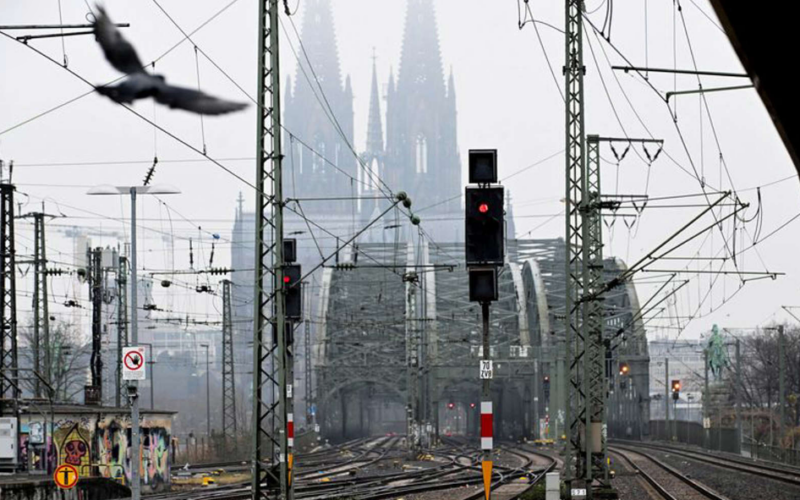Germany’s GDL train drivers’ union has declared a fourth round of strikes in an ongoing wage dispute with Deutsche Bahn, intensifying tensions after rejecting the rail operator’s latest tariff offer. The strike, set to commence on Wednesday and extend until the following Monday, follows the union’s dissatisfaction with Deutsche Bahn’s allegedly insufficient proposals. Cargo train drivers are also expected to join the strike starting Tuesday evening. The escalating conflict highlights the struggle over a collective wage agreement that has persisted since November, with the union advocating for reduced working hours without a pay cut.
The GDL train drivers’ union announced that the upcoming strike will commence at 02:00 am local time on Wednesday, lasting until 06:00 pm on the following Monday. In addition, cargo train drivers have been called to initiate their strike on Tuesday at 06:00 pm. The decision to escalate the strikes reflects the union’s discontent with Deutsche Bahn’s handling of the negotiations and perceived lack of commitment to reaching a mutual agreement.
Despite Deutsche Bahn submitting a new tariff offer on Friday, the GDL promptly rejected the proposal, citing dissatisfaction with the terms. GDL boss Claus Weselsky criticized Deutsche Bahn’s approach, accusing the rail operator of persisting in its “course of refusal and confrontation” without demonstrating a genuine intention to negotiate. The central point of contention remains the union’s demand for a reduced working week, from 38 to 35 hours, for its shift workers while maintaining current wage levels.
Deutsche Bahn responded to the GDL’s decision by accusing the union of exacerbating the conflict and acting irresponsibly. A spokesperson emphasized the rail operator’s willingness to compromise and highlighted their offer of up to a 13% wage increase, coupled with the option of a 37-hour workweek at existing salary levels. The divergence in perspectives between Deutsche Bahn and the GDL underscores the challenges in reaching a consensus and resolving the prolonged dispute.
The conflict between Deutsche Bahn and the GDL over a collective wage agreement commenced in November and has persisted for several months. The primary focus of the union’s demands revolves around achieving a reduced working week for shift workers, aiming to lower the standard from 38 to 35 hours without any reduction in wages. The protracted negotiations have highlighted the complexities of addressing the divergent interests of the train drivers and the rail operator.
As Germany’s GDL train drivers’ union announces a fourth round of strikes, the protracted wage dispute with Deutsche Bahn continues to escalate. The rejection of the rail operator’s latest offer underscores the persistent challenges in finding common ground. The impending strikes are poised to impact train services, emphasizing the urgency for both parties to engage in meaningful negotiations and seek a resolution that addresses the concerns of the train drivers while ensuring the stability of railway operations.








